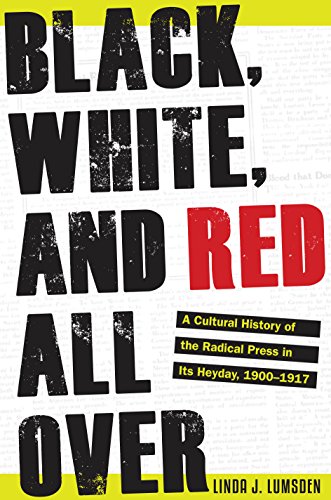

Most ebook files are in PDF format, so you can easily read them using various software such as Foxit Reader or directly on the Google Chrome browser.
Some ebook files are released by publishers in other formats such as .awz, .mobi, .epub, .fb2, etc. You may need to install specific software to read these formats on mobile/PC, such as Calibre.
Please read the tutorial at this link: https://ebookbell.com/faq
We offer FREE conversion to the popular formats you request; however, this may take some time. Therefore, right after payment, please email us, and we will try to provide the service as quickly as possible.
For some exceptional file formats or broken links (if any), please refrain from opening any disputes. Instead, email us first, and we will try to assist within a maximum of 6 hours.
EbookBell Team

4.1
70 reviewsHundreds of newspapers and magazines published by socialists, anarchists, and the Industrial Workers of the World in the years before World War I offered sharp critiques of the emerging corporate state that remain relevant in light of gaping twenty-first-century social inequity. Black, White, and Red All Over offers the first comprehensive narrative to explore the central role that a broad swathe of social movement media played in radical movements, stirring millions of Americans a century ago.
Author Linda J. Lumsden mines more than a dozen diverse radical periodicals including Progressive Woman, Industrial Worker, Wilshire's, the Messenger, Mother Earth, Appeal to Reason, New York Call, and International Socialist Review to demonstrate how they served anarchists, socialists, and industrial unionists in their quest to topple capitalism and create their varied visions of a cooperative commonwealth. The book argues that these subversive periodicals were quintessentially American: individualist, independent, socialminded, egalitarian, defiant, and celebratory of freedom. Even their call for revolution resounded from the roots of the American experience.
Black, White, and Red All Over explores socialist periodicals in the agrarian heartland; views socialists attempts to provide alternatives to urban dailies; explores the radical press crusade to champion workers; analyzes the role anarchist periodicals played in their pioneering battles for a free press, free speech, and free love; surveys socialism in the black press; and details the federal government s wartime campaign to suppress the radical press. It draws parallels with Occupy Wall Street's social media movement. Despite the distance from the typewriter to Twitter, Lumsden concludes that twenty-first-century social movement media perform nearly the same function as did their nearly forgotten predecessors.